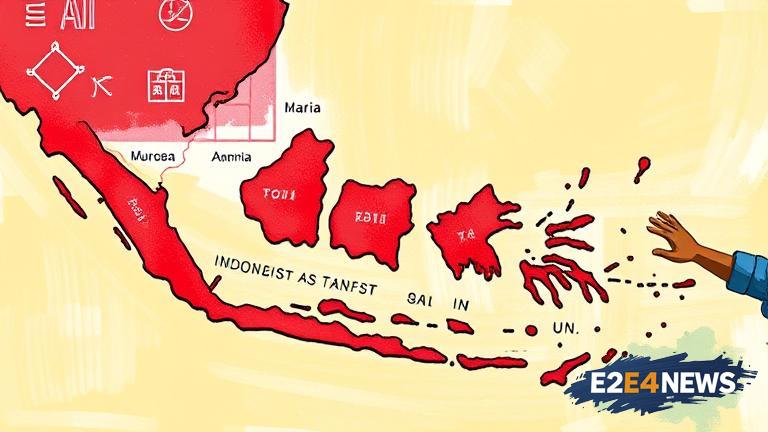Indonesia, Southeast Asia’s largest economy, is hastening to complete trade deals with Europe and Canada. This move is seen as a strategic hedge against the looming threat of US tariffs, which could significantly impact Indonesia’s export-driven economy. The country is aiming to diversify its trade partners to reduce dependence on any single market, thereby safeguarding its economic interests. Indonesia’s trade minister has emphasized the urgency of finalizing these agreements, citing the need to secure market access for Indonesian goods. The European Union and Canada are considered crucial partners in this endeavor, given their substantial markets and favorable trade policies. Indonesia is particularly keen on concluding the Comprehensive Economic Partnership Agreement (CEPA) with the EU, which would provide preferential access to the EU market. Similarly, the Indonesia-Canada CEPA is expected to boost bilateral trade and investment. These agreements would not only enhance market access but also promote investment, economic cooperation, and the exchange of technology and expertise. By diversifying its trade relationships, Indonesia aims to mitigate the risks associated with the impending US tariffs, which could lead to a decline in exports and economic growth. The US has been Indonesia’s second-largest trading partner, but the ongoing trade tensions have prompted Jakarta to explore alternative markets. Indonesia’s exports to the US include textiles, footwear, and electronics, which could be heavily impacted by the tariffs. The Indonesian government is also engaging with other countries, such as Australia and New Zealand, to explore potential trade agreements. Furthermore, Indonesia is seeking to strengthen its position within the ASEAN region, promoting intra-regional trade and investment. The country is committed to becoming a key player in regional and global trade, leveraging its strategic location and large consumer market. In addition to trade agreements, Indonesia is focusing on improving its business environment, investing in infrastructure, and enhancing its competitiveness. The government has introduced various initiatives to support small and medium-sized enterprises (SMEs), which are crucial to the country’s economic growth. Indonesia’s trade strategy is also aligned with its national development goals, aiming to promote sustainable and inclusive economic growth. The country is working to address challenges such as corruption, bureaucracy, and infrastructure constraints, which have hindered trade and investment in the past. As Indonesia navigates the complex global trade landscape, it is essential for the country to maintain a balanced and diversified trade policy. By engaging with multiple trade partners and promoting regional cooperation, Indonesia can ensure its economic resilience and competitiveness in the face of rising protectionism. The ongoing trade negotiations with Europe and Canada are a testament to Indonesia’s commitment to free trade and its determination to secure a favorable trade environment. Ultimately, the successful conclusion of these agreements will depend on the ability of Indonesian negotiators to address the concerns of their counterparts while protecting the country’s economic interests. Indonesia’s trade minister has expressed optimism about the prospects of these agreements, citing the strong bilateral relationships and the mutual benefits of cooperation. As the global trade landscape continues to evolve, Indonesia’s proactive approach to trade diplomacy is likely to yield positive outcomes for the country’s economy and its people.
